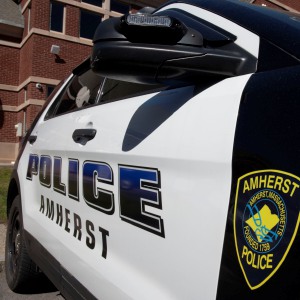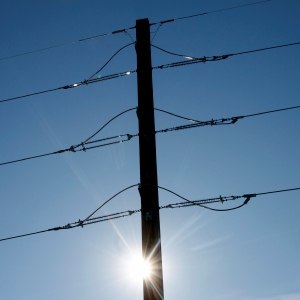Editorial: Towns free to go their own way with broadband
| Published: 04-03-2017 8:42 PM |
It doesn’t happen often enough, but last week common sense prevailed in state government.
The Baker administration, saying it heard the pleas of 40 rural towns in central and western Massachusetts, has essentially stepped out of the way to allow those towns to figure the best, expeditious way to wire their towns for broadband internet.
And better, yet, the state is prepared to release its share of the cost, rather than require the Massachusetts Broadband Institute to micromanage how the state’s $20 million designated for local broadband design and engineering is spent. That insistence has created a bottleneck for several Hilltowns that have been waiting for the better part of a decade for high-speed internet and increasingly are feeling left behind the 21st-century economy and networked world without broadband.
Previously, the design and engineering money was to be spent directly by MBI on behalf of the towns. Under this new program, the separate grant for professional services (including design and engineering) will be combined with the construction money into one allocation — giving towns more flexibility to pursue engineering and construction solutions for their municipally owned networks.
This plan is intended to speed the development of broadband networks, a process that seems to have bogged down when MBI insisted on calling all the shots and refused to relinquish its 30 percent of the costs except under its direction. MBI will continue providing design and engineering services to communities that prefer to work with the organization, but otherwise towns are free to go their way. Many seem to be leaning toward supporting a proposal from Westfield Gas & Electric (doing business as Whip City Fiber) offering to work with individual town or groups, to design, build and possibly operate their last mile networks.
“We’re very pleased with the new grant program,” said Marilyn Wilson, who chairs the Rowe Select Board. “We’re very pleased that we will be getting our full allotment and that we will finally have full local authority over how our money is spent. We’ll be able to choose who we want to work with.”
Gov. Charlie Baker seemed to be channeling Wilson and other rural officials when he announced the policy shift, saying, “There is no one-size-fits-all solution to the broadband gaps currently facing rural Massachusetts towns, so our administration is empowering communities to pursue the solutions that are most appropriate for them. We want broadband solutions to be flexible and responsive to local needs ...”
State officials said that a meeting during February in Worthington with leaders of 17 unserved towns “was a watershed moment” that led to the change.
Article continues after...
Yesterday's Most Read Articles
 Holyoke man finds bear paw in his yard
Holyoke man finds bear paw in his yard
 Boyfriend accused in slaying of Hampden sheriff’s assistant, former legislator’s top aide
Boyfriend accused in slaying of Hampden sheriff’s assistant, former legislator’s top aide
 Three finalists named for Ryan Road School principal in Northampton
Three finalists named for Ryan Road School principal in Northampton
 Developer pitches new commercial building on Route 9 in Hadley
Developer pitches new commercial building on Route 9 in Hadley
 Two men dump milk, orange juice over themselves at Amherst convenience store
Two men dump milk, orange juice over themselves at Amherst convenience store
 Sadiq to leave Amherst middle school principal role
Sadiq to leave Amherst middle school principal role
During that meeting, officials from underserved communities said they preferred the proposal by the Westfield firm over five other companies that had applied to the Massachusetts Broadband Institute for internet technology grants to build networks in the 40 towns.
”Westfield Gas & Electric is far and away the nest proposal I’ve seen,” said Goshen Select Board member Wayne Glaser. It was the only company to offer an a la carte menu of services,including design and engineering, construction management and network operation.
Many of the town officials said they want to build and own their own broadband networks, rather than have them operated through a regional organization such as WiredWest. It offered a plan to provide operating services for towns that built their own networks.
And local officials in February also expressed a sense of urgency in getting high-speed internet to their towns, saying they had waited for more than nine years to get a plan in place.
”We have an aging population, no younger people are moving into town, and the one general store that we had is now closed,” said Chesterfield Town Administrator Sue Labrie.
We have to give state officials credit for listening and acting on the message. Lt. Gov. Karyn Polito said, “Western and central Massachusetts communities have told us they want a more nimble and more responsive last mile program. We have taken their feedback to heart, and through this new grant program, we will accelerate the pace of progress on local last mile broadband challenges.”
Score one for the little towns.

 Guest columnist Mariel E. Addis: Under seige from all sides
Guest columnist Mariel E. Addis: Under seige from all sides Columnist Johanna Neumann: Reaping the rewards of rooftop solar
Columnist Johanna Neumann: Reaping the rewards of rooftop solar Julia Riseman: Join Friends of Northampton Trails
Julia Riseman: Join Friends of Northampton Trails Justine McCarthy and Ed Lamoureux: Political will needed to benefit from new power line technology
Justine McCarthy and Ed Lamoureux: Political will needed to benefit from new power line technology
